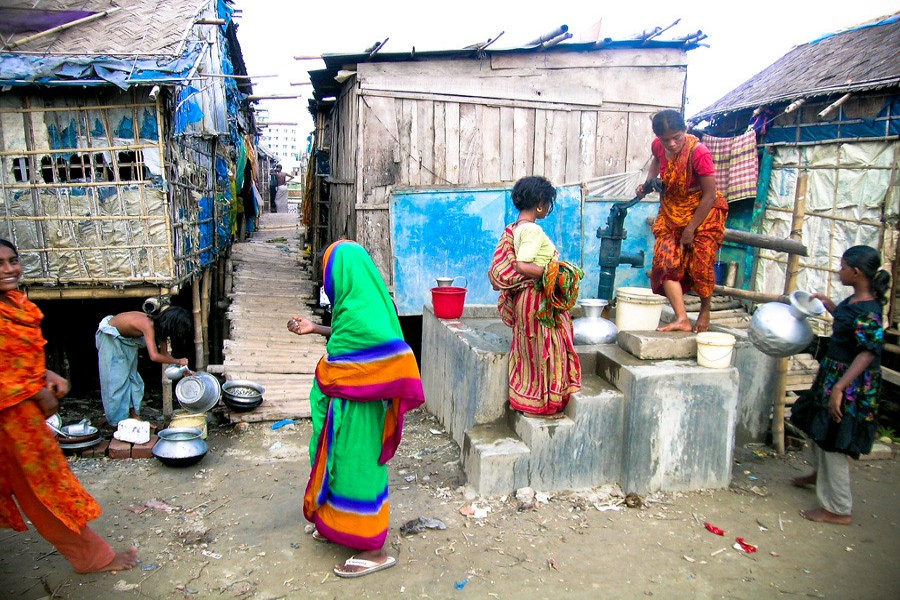Unavailability of proper water supply and sanitation facilities is making the internal migrant women workers in the capital vulnerable to infection of deadly coronavirus, according to a study.
Cent per cent of the respondents in the study reported that they use common toilets and bathrooms as well as collect water for drinking and cooking from common supply.
Such congested washing facilities hinder physical distancing and social distancing, resulting in chances of coronavirus infection in all the research areas, it found.
The study - 'Covid-19 Pandemic: Socioeconomic Situation of Migrant Women Workers' - was conducted during this March-April period by Bangladesh Nari Sramik Kendra (BNSK).
It covered 154 families, headed by women workers, in Chollish Bosti, Pora Bosti, Geneva Camp, Bizlee Mahalla and Johuri Mahalla of Mohammadpur in the capital.
Some 78 per cent of the total respondents in all five areas confirmed that they wash hands before eating and after using toilet. But they do not always use soap, as they do not have required supply of the sanitisation material.
Although, the 100 per cent women migrants' families are trapped in the corona-affected areas, they are hardly getting test and treatment facilities.
Besides, about 40 per cent of the elderly respondents said they are not getting regular medication for special health condition.
Some 50 per cent of the workers said they need protective gears, like - facemask and Personal Protective Equipments (PPE) etc, immediately to stay safe. However, the rest 50 per cent are ignorant about personal protection.
Moreover, the study also found that nearly 76 per cent of the women workers do not have proper knowledge about the risk of coronavirus infection.
Some 78 per cent of the respondents have very poor idea about protection from coronavirus. All of the women migrants reported that they do not know about the health directives of World Health Organization (WHO).
About 21 per cent of the women said they have the idea of using soap to prevent spreading of the killer disease from friends and peers.
The community also rarely believes in the presence of this unseen killer virus.
The surveyed families migrated to the capital from Barishal, Satkhira, Khulna, Jamalpur, Mymensingh, Nilphamari, Kurigram, Rangpur, Gopalganj and Sylhet.


